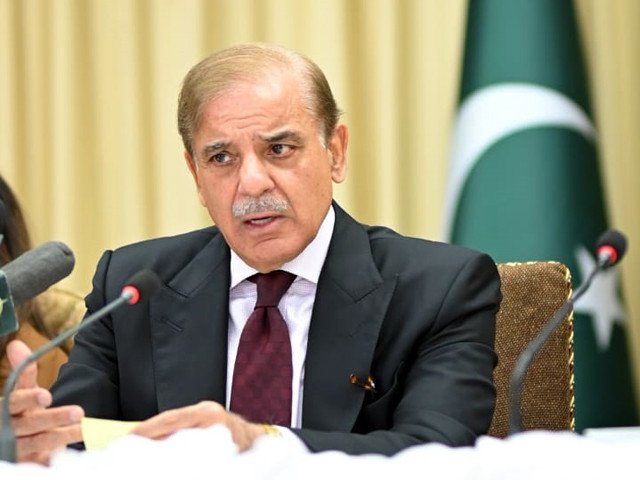Prime Minister Shehbaz Sharif on Thursday condemned the Pakistan Tehreek-e-Insaf (PTI) for the recent violence during its protests, accusing its leaders of inflicting severe economic damage on the country. In response, the prime minister directed the formation of specialized anti-riot forces across the country.
“The forces should be professionally trained and equipped with international standard tools,” he said while chairing a meeting to review the law-and-order situation in Islamabad.
The federal capital saw significant unrest on Monday and Tuesday when PTI supporters flooded the city in defiance of a ban imposed by authorities. The party’s planned “do-or-die” protest calling for the immediate release of PTI founder Imran Khan was abruptly ended after a major crackdown by law enforcement agencies (LEAs).
PTI leader Salman Akram Raja claimed that at least 20 people had died during the protests and said the party would take legal action against the government, the Ministry of Interior, and the interior minister.
Islamabad’s police chief, Ali Rizvi, denied reports of live ammunition being used during the operation, stating that 600 protesters had been arrested on Tuesday, bringing the total number of arrests since the protest began to 954.
During Thursday’s meeting, the prime minister was briefed on the damage caused by protestors, including vandalism of public property and attacks on police and Rangers personnel.
PM Shehbaz sharply criticized those involved in the violence, stating, “These so-called revolutionaries are trying to destroy the country and sow chaos.” He added that the ongoing unrest was causing billions of rupees in economic losses and vowed that those responsible for the disruptions would face exemplary punishment.
The premier emphasized the need to establish measures to prevent such protests from recurring, urging authorities to develop a comprehensive strategy to prevent protests that serve personal or political agendas. He called for swift justice against those inciting unrest.
National Security and Economic Growth
In a separate address at the 26th National Security Workshop of Defence University in Islamabad, PM Shehbaz stressed the interconnection between national security and economic stability. He stated that a strong economy directly contributes to the country’s security.
“Economic security strengthens our critical security,” he said, reiterating the government’s commitment to revitalizing Pakistan’s economic landscape. The prime minister also highlighted the government’s intention to implement a comprehensive “Charter of Economy,” an idea he proposed in 2018 as an opposition leader.
Additionally, PM Shehbaz called for the privatization of state-owned enterprises (SOEs), urging the government to withdraw from loss-making businesses to free up resources and promote private enterprise.
He commended the performance of the Pakistan Stock Exchange, which recently crossed the 100,000-point mark, attributing the success to the concerted efforts of the government and stakeholders. He acknowledged that although the stock market had experienced a significant drop due to the protests in Islamabad, it rebounded quickly as stability returned.
Challenges and Progress
The prime minister acknowledged the ongoing challenges facing the country, especially the economic crisis in 2023, when Pakistan was on the verge of default. However, he credited the successful agreement with the International Monetary Fund (IMF) with helping to stabilize the economy, though he warned that the program would bring additional hardship to the people.
PM Shehbaz also addressed the security situation, highlighting the sacrifices made by 80,000 people in the war against terrorism, which resulted in $130 billion in economic losses. While he noted that terrorism had been largely defeated during Nawaz Sharif’s government, he expressed concern over its resurgence, citing recent incidents of violence, including one in Parachinar.
In closing, the prime minister vowed to work together with all stakeholders to secure the country’s future, emphasizing the need for unity to overcome the nation’s challenges.










